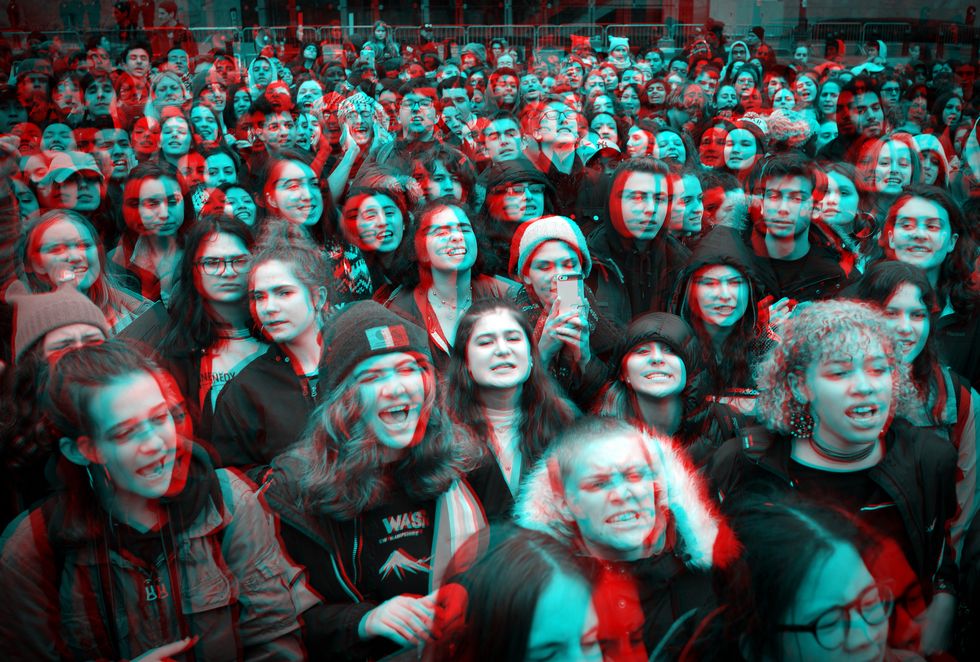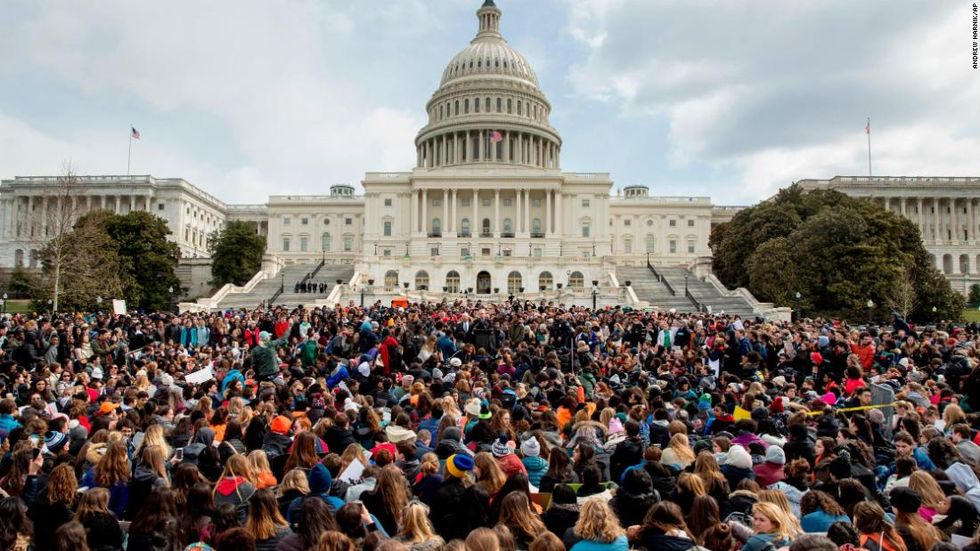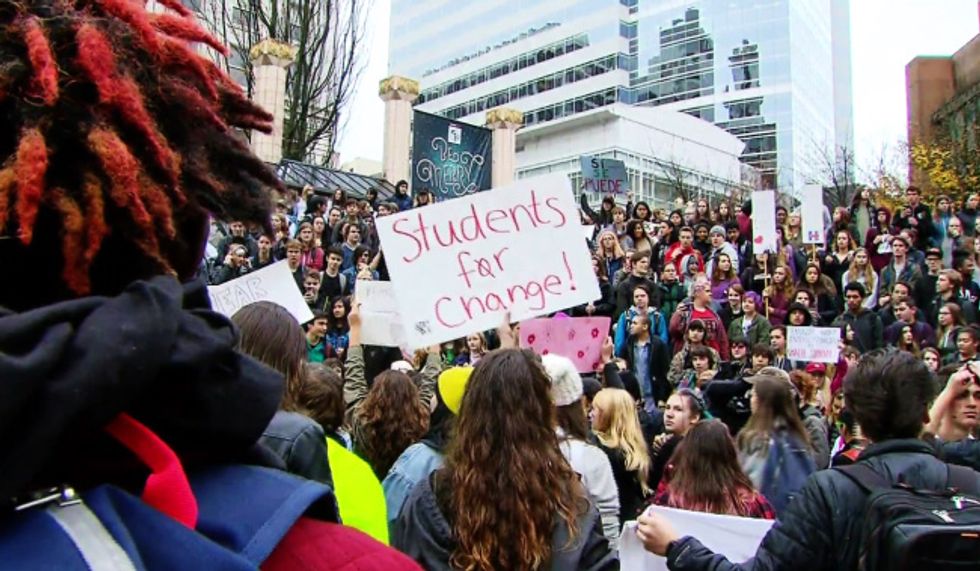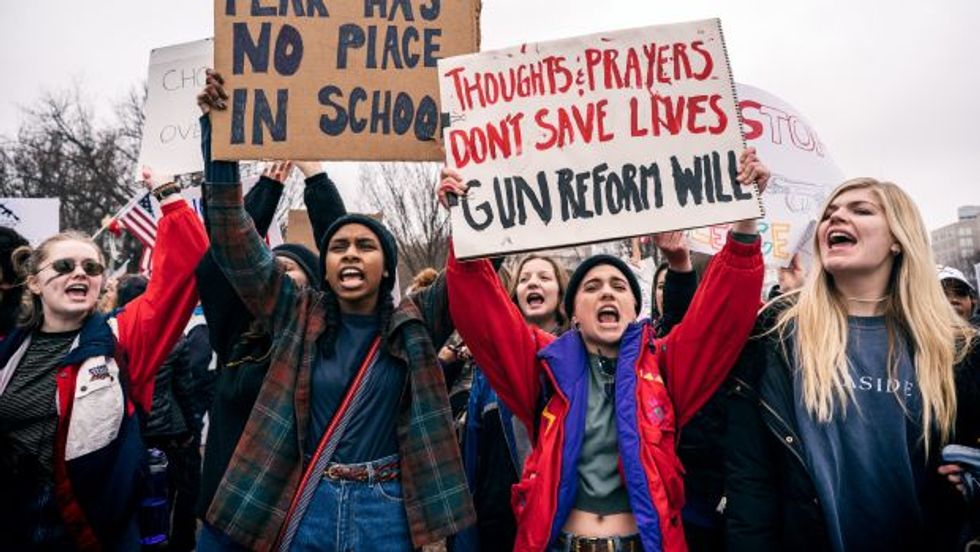For years, students have been taught about the work of civil rights leaders in history and political science classes. We’ve been shown the bravery of walkouts and sit-ins with regards to racial justice. We honor civil rights leaders like Martin Luther King Jr. with a national holiday. We admire the resolve and bravery to stand up for what is right, and are encouraged to do so. But it seems, once that admiration turns into action, there’s a problem.
Following the recent shooting of 17 at the Stoneman High School in Florida, a nation-wide walkout took place. Thousands of students chose to leave their classrooms, some standing outside their buildings for a moment of silence, while others took to the streets with homemade signs. Hundreds of students gathered at the White House where they vocalized their dissent, chanted phrases like “Hey hey ho ho! The NRA has got to go!” and “We want change!”
This trend of massive-scale activism, more specifically the youth-centered movements, doesn’t seem to be something that is temporary. January’s Women’s March on Washington boasted one of the largest demonstrations in U.S. history. And we’re seeing a greater diversity of participants too- not only the stereotypical “activist” armed with a megaphone, but first-time marchers as well.
I believe there is a public shift, at least among young liberals, to reject what has been socially or politically deemed “normal”. Normalizing cultural problems as something that is inevitable or unchangeable is not only limiting but it is unsustainable. There is no excuse to justify an act of wrongdoing “because we’ve always done it this way”. There is no excuse for why we cannot adapt to solve social problems we have struggled with for centuries. We still battle racial inequality, gender disparity, immigration reform, homelessness, wealth inequality, and sky-high incarceration rates despite being one of the most advanced countries in the world. We have the means to make change and yet we have not made the progress that we need to because we are not willing to rock the boat. We move but we move slowly, as if scared to make waves.
But progressing this way is ironic, because while politicians say they advocate for improvements, when students vocalize dissent or express a want for systematic change, we are silenced. We are judged as being “too young” to understand complex issues, “too emotional” to think rationally, or “too inexperienced” to know how to solve the problems that affect us.
In continuously rejecting the opinions of young activists, we show an acceptance of societal inequality as it is.
Students may not have much political or social power. And perhaps, this one instance, a school walk-out for gun control, will not be a significant turning point in history. But we are the future, and for that reason I believe that makes us powerful. Because when we are vocal, when we are present, when we are educated, when we are angry- we make waves. And when we make waves, we bring with us a storm.











































